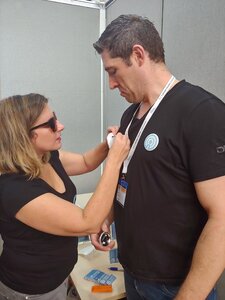- Oct 24, 2017
- 870
- Tinnitus Since
- 10/2017
- Cause of Tinnitus
- one-sided hearing loss (of unknown origin)
Hey there, this is just an idea at the moment that @TuxedoCat, @Markku and I came up with, but we'd like to see whether we can pull it off. We want to explore whether we as patients can meaningfully improve tinnitus healthcare by affecting regulatory change.
Examples of what we could do are: 1) Create petitions to force parliaments in selected countries to discuss tinnitus research/care; 2) Approach (national) patient organisations in various countries to lobby together; 3) Take part in stakeholder consultations organised by national healthcare organisations on tinnitus care/management.
We're really just floating the idea at the moment and asking for your feedback. We may put a more formal structure around this later.
Do you any of you out there have specific expertise on:
Examples of what we could do are: 1) Create petitions to force parliaments in selected countries to discuss tinnitus research/care; 2) Approach (national) patient organisations in various countries to lobby together; 3) Take part in stakeholder consultations organised by national healthcare organisations on tinnitus care/management.
We're really just floating the idea at the moment and asking for your feedback. We may put a more formal structure around this later.
Do you any of you out there have specific expertise on:
- Political lobbying in general;
- National healthcare system of specific countries;
- Government funding for healthcare research?

 Director
Director Member
Member




